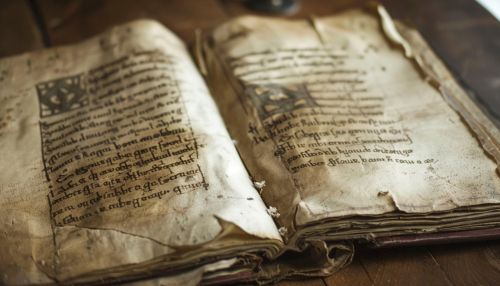British Literature
Origins and Development
The origins of British literature can be traced back to the literary contributions of the Anglo-Saxon period (450 AD to 1066 AD). The literature of this era, written in Old English, was heavily influenced by the Germanic tribes who invaded Britain, including the Angles, Saxons, and Jutes. The most renowned work from this period is the epic poem "Beowulf", which is a significant text in the history of British and world literature.


Middle English Period
The Middle English period (1066 AD to 1500 AD) saw a significant shift in the language and style of British literature. The Norman Conquest of 1066 introduced a French influence, which can be seen in the works of Geoffrey Chaucer, the most famous writer of this period. His "Canterbury Tales" is considered one of the greatest works in British literature, notable for its use of vernacular English and its insightful portrayal of medieval life.
Renaissance and Enlightenment
The Renaissance (1500 AD to 1660 AD) was a period of rebirth and enlightenment in British literature. The works of William Shakespeare dominated this era, with his plays and sonnets having a profound impact on English language and literature. Other significant writers of this period include Christopher Marlowe and John Donne.
The Enlightenment (1660 AD to 1785 AD) was marked by the rise of the novel and the use of reason, logic, and satire in literature. Important writers of this period include Daniel Defoe, author of "Robinson Crusoe", and Jonathan Swift, author of "Gulliver's Travels".
Romanticism and Victorian Era
The Romantic period (1785 AD to 1832 AD) was characterized by a focus on emotion, nature, and the individual. Key figures of British Romanticism include poets such as William Wordsworth, Samuel Taylor Coleridge, and Lord Byron.
The Victorian era (1832 AD to 1901 AD) was a time of great change and social upheaval, reflected in the literature of the period. Charles Dickens, Thomas Hardy, and the Brontë sisters are among the most influential authors of this era.
Modern and Postmodern Era
The Modernist period (1901 AD to 1965 AD) saw a radical shift in literary techniques and themes, with writers like Virginia Woolf and James Joyce experimenting with stream of consciousness and other innovative narrative forms.
Postmodern literature (1965 AD to present) is characterized by a focus on metafiction, fragmentation, and a questioning of reality and truth. Notable British postmodern authors include Salman Rushdie, Ian McEwan, and Zadie Smith.
